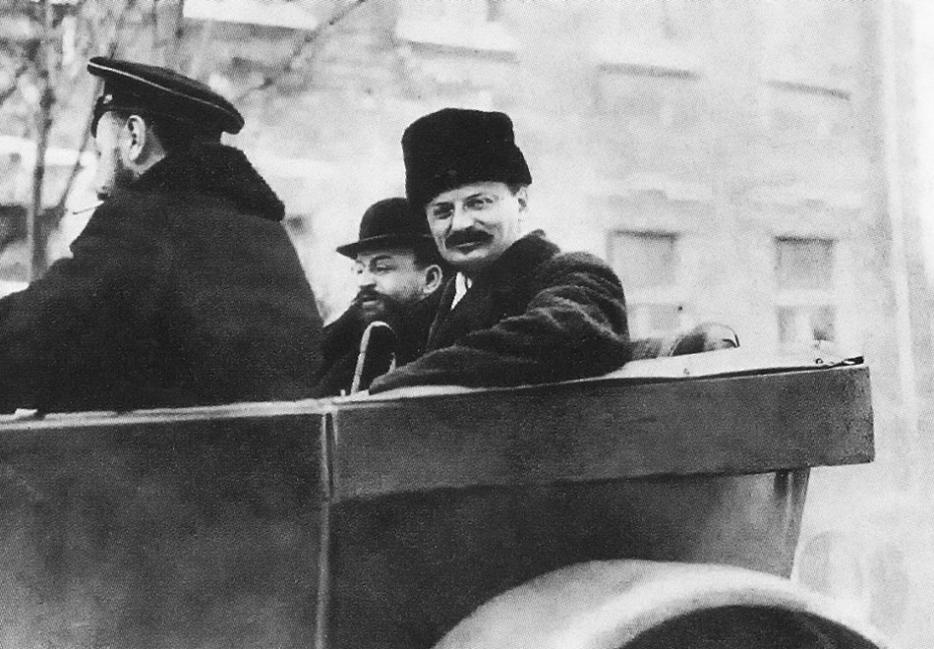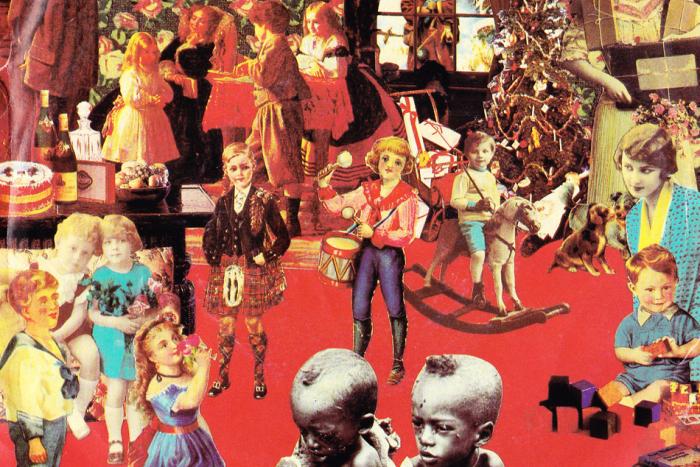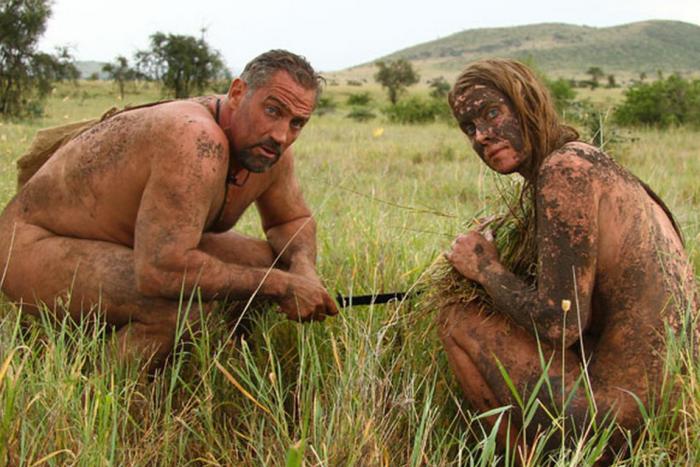Read the other stories in our WWI fiction partnership with The Globe and Mail here.
The first worry is the moon. Tipton has done the calculations, but now, in the thick of the plan, Ed senses the dark thinning, a blueness rising underneath. Beside him, he can make out Tipton looking at the sky too, a hand flat on the crown of his fez to keep it from tipping backwards. Edward fidgets with his own slippery tassel, replants his feet on the ground to feel the weight of his stance, and tries to ignore the pounding of blood in his ears, the fear that early moonlight will reveal them.
When the tap comes on the door, the men make more noise than they mean to, unaware that they’ve been choking every breath. Goodbyes are whispered to the prisoners keeping lookout inside, and then Sweet rips the door from its hinges and they duck under what’s left of it to meet Prosser, their orderly, in the street. All five walk quickly, heads down, their footsteps dulled on the cobblestone by the socks stretched over their boots. They’ve taken other precautions, too: coats turned inside out and rucksacks slung sideways in burlap bags. Along with the fezzes, their silhouettes should look unexceptional—a villager might not even take note. Prosser leads them westward, past Kastumani’s lanky minaret and up through narrow byways where Edward has never been. The air is cooler as they move and smells of earth and metal. For the time being, the sky stays stalled on black.
Within five minutes, they’ve reached the western edge of town. They scramble up the hill of the cemetery and, panting, throw themselves behind two of the bigger gravestones. They pull the socks off their boots and put their rucksacks on properly. By the time they’ve said goodbye to Prosser, a fat pearl moon has climbed into the sky. And while it’s bad news for them—they’ll have to give extra wide berth to the Turkish barracks to their north—they can’t resist giving Tipton a hard time. Won an astronomy prize, did you? Edward snaps his sock on Tipton’s shoulder, laughing. Bloody Copernicus over here.
*
There’s an elegant, blue-bound book that has been in my family for 90 years, though I’m still not sure how many of us have actually read it. Luckily, not having read Adventures in Turkey and Russia has never stopped my family from talking about it as though they have, telling the story it relates with an insider’s authority. My dad must have first told me about the Anatolian escape when I was in my early teens, at least a decade before he got around to reading his great-uncle’s account of the event. So what I heard then (and what my dad had probably heard himself) was our own form of broken telephone—more the teller’s fascination with the tale than a loyal recounting of its details.
After a five-month siege, the Iraqi town of Kut Al Amarah surrendered to the Ottoman army in April of 1916. With the surrender, the Ottomans claimed 13,000 prisoners of war, what remained of a joint British-Indian garrison. Edward Keeling, my great-great uncle, was among 75 captive officers transported by rail, steamer, pony, car, and foot through most of Iraq, across the northern expanse of Syria, then through the Taurus mountains of Asia Minor into Anatolia. After more than a year in captivity, he escaped from a Turkish prisoner-of-war camp with three other officers. En route to the coast, they were recaptured by the Turkish army only to be freed, bizarrely, by a tribe of rugged political outlaws (Edward calls the leader his “Turkish Robin Hood”), who then helped them escape across the Black Sea.
But this is not the part of the story that my dad dwelled on when he told it to me. My dad is a man who grew up with a poster of Karl Marx over his bed, who was arrested at a Vietnam war protest in his teens, and his interest was pulled, unsurprisingly, to the adventure’s second half, when Edward showed up on the coast near Sevastopol in October of 1917, thinking he’d landed on allied territory. Of course, Russia was in the midst of a little revolution and the Bolsheviks had stopped issuing travel papers to stranded western officials. But Edward managed to secure a meeting with Trotsky and, as my dad’s rendition went, charmed the legendary revolutionary into letting him return to the U.K. When I asked my dad what this charming consisted of, he widened his eyes inscrutably and told me to ask my grandmother for the book.
*
They walk at night—through gorges, open fields and thick forests—then try to find woods where they can bivouac in daylight, though the heavy sun makes it hard to sleep. At 35 pounds, their rucksacks force their spines into curves, carve welts into the skin beneath their coats. They can’t do without the axe-head, the cooking canteens, the gear for boot-repair, the rope for rigging, so when they need to shed weight they toss away malted milk and two-thirds of the dried meat. The loss means relying on stolen wheat for food, which they husk themselves, threshing the grain with the blunt end of the axe-head, then pulling the chaff off by hand. But something in the porridge doesn't sit well with Tipton, and after two days he is in immense pain, the right side of his abdomen swelling into a shiny, egg-shaped mound.
The first close call happens on a pebbled road at dusk, near a village they think is Duraghan. In the distance they see three men on ponies, a herd of cattle plodding behind. They try to take cover in a ditch, but move too slowly. The herdsman in front asks them who they are. In broken Turkish, Sweet replies that they are German soldiers, but the man shakes his head and says they are prisoners of war. He repeats the charge again and again, like a musical incantation, his head tilted towards the sky. Edward shudders as the ponies kick up dust, and all four remain silent once the herd has passed, not wanting to acknowledge that the Turks might go straight to the gendarmerie.
By day 11 the soles of their boots have worn thin and they are weak from a diet of boiled wheat. Despite the risk, they decide to approach a village in order to buy a meal. Passing a stone farmhouse, a weary family comes out to greet them. Edward is saddened by the procession of sunken eyes in similar faces, as though the children have inherited the same response to hunger. The father points them in the direction of another farm and, on the winding path he’s indicated, they meet a middle-aged peasant who takes them to his house, where he serves them thick, sweet coffee and cucumbers in milk. The peasant believes the German story, but points out, on the officers’ map, that they are still 50 miles from Duraghan. That night, after leaving the peasant with three cigarettes they claim to be the finest German tobacco, they decide it’s crucial they speed up their progress. They’ll take main roads and head due north to the coast.
*
When I was 14 and tried to imagine the Winter Palace in the midst of the revolution, I saw a castle folding in on itself—domed ceilings collapsing onto floorboards, powder blue walls crumbling into plaster dust—as though the Hermitage were a giant Fabergé egg that the Bolsheviks were cracking open with their hammers. I imagined Edward crawling out of the sea and up to the palace’s front steps, his hair still dripping with salt water as he dragged himself along a broken hallway towards Trotsky (it seemed to me that any decent escape must involve some degree of swimming).
I grew up thinking everyone had a soft spot for Trotsky. When, in the mid-1990s, I left copies of NOW magazine scattered around my bedroom, my dad sighed nostalgically and told me he knew all those Trotskyites from U of T. If you hated communism, there were gulags and purges to target, but Trotsky could still be the gentle and prophetic hero who stood up to Stalin and made love to Frida Kahlo. In my family, and surely in others with communist pedigree, Trotsky symbolized a moment when things might have gone differently in the USSR and, maybe with that, differently for the whole century.
When I finally sat down to read the book in my early twenties, I didn’t know that Edward had spent 20 years as a Tory MP in Westminster after the war. (His younger sister, my great-grandmother, would emigrate to Canada and become an active member of the Communist Party). Even if I had known, I still would’ve expected him to feel a modicum of respect, or least celebrity curiosity, for this leader of a movement that had just dismantled 300 years of autocratic rule. But Edward describes the Bolsheviks as semi-barbarians, and bemoans their destruction of a class-system he condoned.
When their sailboat docked at the small beach of Alupka on the Crimean, the four British officers were frustrated by how much Russia’s disorder slowed their own objectives. Kerensky was still in power as the head of the Provisional government, and once the officers reached Petrograd, they were able to return to the UK. Edward stayed on to arrange for a boat from the Russian fleet to rescue the prisoners of Kastumani. But just as his plan was starting to materialize, the Bolshevik coup overthrew Kerensky, and Lenin and Trotsky took control of the country.
Edward’s meeting with Trotsky comprises all of one long paragraph in the book. Considering this brevity, it’s telling what he manages to include. Describing Trotsky he writes: “He is unmistakably a Jew (his real name is Bronstein). And it was perhaps not surprising that he also had a ferrety look, as of one who is on the watch for a bomb.” (There’s more casual anti-Semitism in the book: Edward describes being accosted by a Jew who speaks broad Cockney and implies that the man cunningly moved to Russia to dodge British military service.) Reading this, I feel pretty lonely in the irony. Of course, Edward would not have known that his niece (my grandmother) would marry a Jewish New Yorker, and that their son (my father) would marry a Jew from Montreal, so that the great-great niece interested in memorializing him would be unmistakably a Jew herself.
When I mention these anti-Semitic passages to my family, no one seems to remember them. When I try to look past them (and everything they imply from the other side of the 20th century) I can’t help but think that my dad has credited the charm to the wrong guy. Trotsky asks Edward why he should make an exception and grant him a passport to return to the UK. Edward tersely replies that, after escaping an enemy country, it would be hard to be imprisoned in an allied one. Trotsky throws his head back laughing, shakes Edward’s hand, and gives immediate orders for the passport to be endorsed. Sure, Ed’s line is a little clever, but Trotsky’s reaction is impressively over the top. He emerges as a man who amuses himself effortlessly, prizes wit and, in 1917, was still keen to extend mercy. (He might have thought twice had he’d known which side of parliament Edward would be sitting in 15 years later.)
*
According to the ancient Greek geographer Strabo, there’s a place in the middle of the Black Sea where the blue mountains of Anatolia and the dusty crags of the Crimea can be seen simultaneously from the deck of a ship. Edward thinks of this as he leans over the prow and looks out at the rough, endless water, not a sliver of shore in sight—a view that’s remained unchanged for nearly two days. He wonders if Strabo lied or had simply been unable to alter his expectations. Maybe Strabo had always imagined a spot poised perfectly between the rock-face of north and south, so that even when reality failed to corroborate his vision, it still existed as an independent location in his mind. Spots like these must occur, like eclipses, throughout history, where the viewer’s understanding is clouded by expectations lingering in the eyes. If endings can only ever be imagined, and not lived, maybe we approach each one like a distant shore we’ve already seen, determined to make the unfolding story align with the one so alive in our minds, if nowhere else. And thinking that he’s put this rather elegantly, Edward pulls out the diary that he’s kept with him since Iraq and fumbles through his rucksack for a pencil.
Read the other stories in our WWI fiction partnership with The Globe and Mail here.






